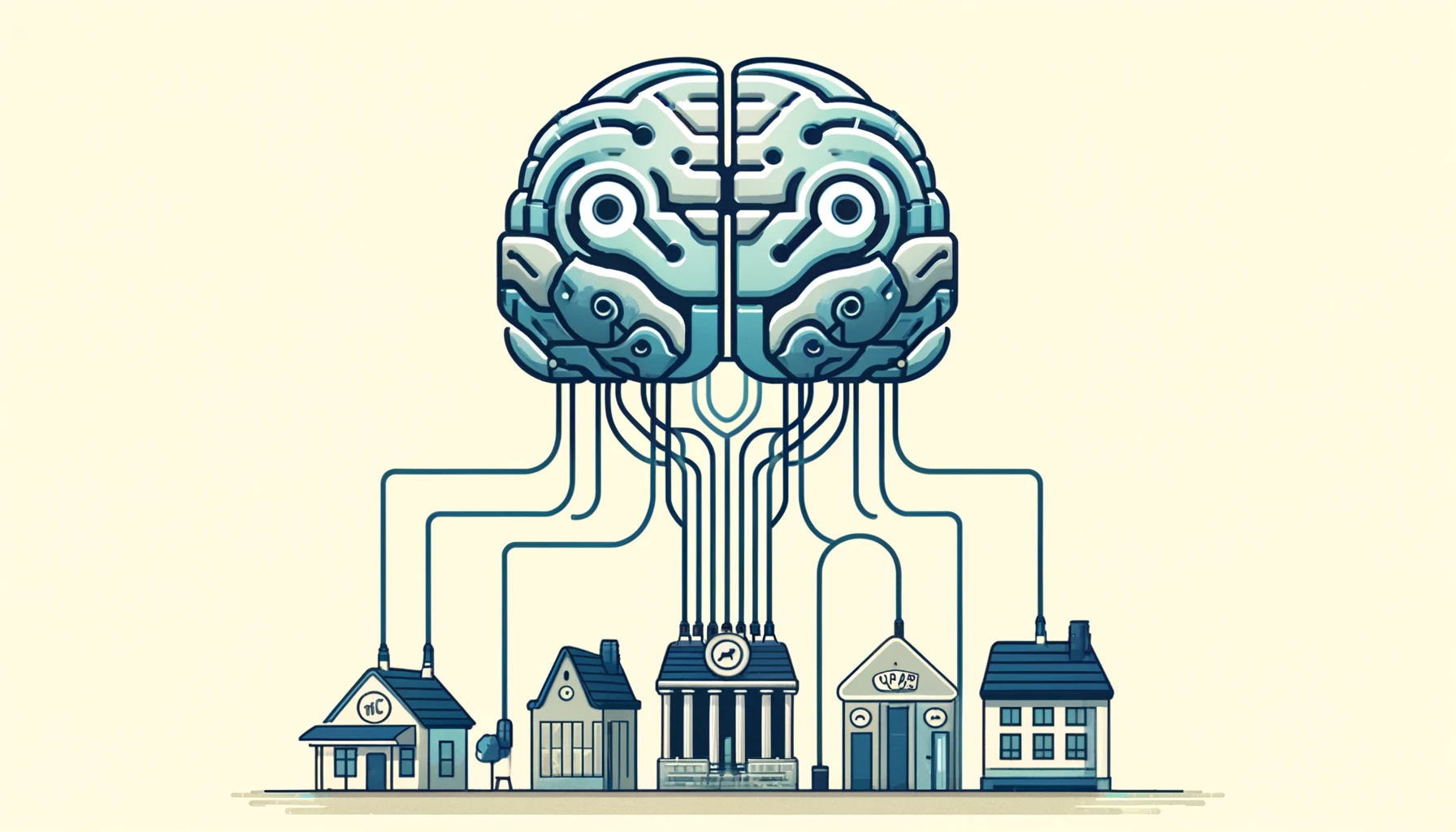
The integration of artificial intelligence (AI) in banking continues to surge, largely driven by the innovations following OpenAI’s launch of the ChatGPT chatbot in late 2022. This technological shift is significantly altering how banks approach routine and complex operations, such as fraud detection and anti-money-laundering activities. However, this rapid adoption of AI technologies is also fostering an increased dependency on a few large U.S. tech giants, potentially ushering in new risks within the banking sector.
At the recent Money20/20 conference in Amsterdam, which featured a congregation of leading fintech executives, there was palpable excitement about the potential of generative AI in banking. Yet, alongside this enthusiasm, there were voiced concerns regarding the growing reliance on major tech providers for critical AI infrastructure and computing power.
Bahadir Yilmaz, the Chief Analytics Officer at ING, expressed a pragmatic outlook during his conversation with Reuters. He noted that banks are becoming increasingly reliant on large technology companies for the robust infrastructure required to run advanced AI models. “You will always need them because sometimes the machine power that is needed for these technologies is huge. It’s also not really feasible for a bank to build this tech,” Yilmaz explained.
The dependency on a small cadre of technology providers poses significant risks. One major concern is “vendor lock-in,” where banks may find themselves unable to easily switch between different tech suppliers without incurring substantial costs or disruptions. This issue is particularly pronounced for European banks, which Yilmaz emphasized need strategies to ensure flexibility in their technological partnerships.
In response to these concerns, the United Kingdom took a proactive step last year by proposing regulations aimed at managing financial firms’ reliance on external technology companies, including tech giants like Microsoft, Google, IBM, and Amazon. The regulatory bodies are wary of the potential systemic risks that could arise if a major provider experiences a failure, potentially impacting multiple financial institutions simultaneously.
| Application Area | Description | Impact |
|---|---|---|
| Fraud Detection | AI algorithms analyze transaction patterns to identify fraudulent activities. | Enhances security and trust. |
| Customer Service | AI chatbots handle inquiries and support tickets, reducing wait times. | Improves customer satisfaction and operational efficiency. |
| Risk Management | AI assesses client profiles and market conditions to advise on risk. | Helps in making more informed decisions. |
Joanne Hannaford, who heads technology strategy at Deutsche Bank’s corporate bank, also highlighted the critical nature of computing power in effectively deploying AI. Speaking to an audience at the Money20/20 conference, Hannaford remarked, “AI requires huge amounts of compute and really the only way that you’re going to be able to access that compute sensibly is from Big Tech.”
Additionally, the conference spotlighted emerging AI players such as Mistral AI, a French startup often touted as France’s counterpart to OpenAI. Arthur Mensch, CEO of Mistral AI, discussed the “synergies” between their generative AI products and financial services, emphasizing the opportunities AI presents in enhancing analysis and monitoring within banking.
- Rapid AI Adoption: Banks are increasingly integrating AI to enhance efficiency and service delivery.
- Big Tech Reliance: Dependency on a few large tech firms is growing, raising concerns about risk and vendor lock-in.
- Regulatory Moves: Nations like the UK are beginning to propose regulations to manage and mitigate these dependencies.
- Innovative Applications: From customer service bots to risk assessment tools, AI is revolutionizing multiple facets of banking.
As banks experiment with AI, such as ING’s ongoing tests with an AI chatbot currently managing 2.5% of incoming customer service chats, questions about scale and effectiveness remain. Yilmaz projected that within a year, AI could handle half or more of such interactions, marking a significant shift towards automation in customer relations.
Concurrently, the European Union’s securities watchdog issued its first statement on AI last week, emphasizing that banks and investment firms must not diminish boardroom accountability. The statement highlighted a legal obligation to safeguard customers when employing AI, underlining the technology’s potential impact on retail investor protection.
The blend of optimism and caution at the Amsterdam conference reflects a broader industry trend: as AI technologies become deeply embedded in financial services, banks must navigate the opportunities and challenges with strategic foresight and robust risk management practices.
Related News:
Featured Image courtesy of DALL-E by ChatGPT
